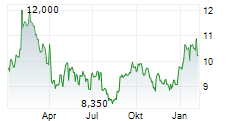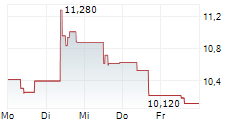Often considered as our "second brain", the human gut and its resident microbiota play a crucial bidirectional role communicating the brain (central nervous system) with the gut (enteric nervous system), in what is called the microbiota-gut-brain axis.
Researchers of University of Gothenburg and BioGaia AB (NASDAQ: BIOG) have identified that specific bacteria present in the gut can produce an important bioactive substance of the microbiota-gut-brain axis: serotonin.
Serotonin is best known as a neurotransmitter in the brain, but over 90 percent of the body's serotonin is found in the intestine, produced by human cells in the gut. There, it controls, among other things, intestinal movements via the enteric nervous system.
Previous research has shown that the composition of bacteria in the intestinal microbiota affects how much serotonin is produced, but until now it has been unclear whether intestinal bacteria themselves can form biologically active serotonin.
In the current study, published in the prestigious journal Cell Reports, the researchers have identified two bacterial strains that together can produce serotonin. The bacteria's Latin names are Limosilactobacillus mucosae and Ligilactobacillus ruminis, both belonging to the former genus known as Lactobacillus. The two lactobacilli were able to increase the intestinal levels of serotonin as well as colon innervation and normalize transit time in models of serotonin deficiency.
"It is incredibly fascinating how the bacteria in the intestine can produce bioactive signaling molecules that affect health," says Fredrik Bäckhed, professor of molecular medicine at the Sahlgrenska Academy at the University of Gothenburg and one of the leaders behind the study.
The researchers were also able to see that people with irritable bowel syndrome (IBS), a disorder of the gut-brain interaction, had lower levels of one of the species (L. mucosae) in their stool compared to healthy individuals. It was also found that the identified L. mucosae strain has the enzyme required for serotonin production.
"Our results indicate that certain gut bacteria can produce bioactive serotonin and thus play an important role in gut health and open new avenues for the treatment of functional bowel diseases such as IBS," says Fredrik Bäckhed.
"With this outstanding discovery, together with the University of Gothenburg, we have been able to identify that gut bacteria can produce bioactive signaling substances such as serotonin, which will not only help us to better understand how the gut microbiome signals the brain and potentially our behavior, but also open the way for the development of innovative probiotic products in the gut health and mental health spaces," says Gianfranco Grompone, Chief Scientific Officer at BioGaia.
Follow us:
Subscribe to BioGaia press releases here
LinkedIn here
Contacts:
Gianfranco Grompone, Chief Scientific Officer
Email: gg@biogaia.se
Phone: +46(0)8 555 293 00
About BioGaia
BioGaia is a Swedish probiotic company that has been at the forefront of microbiome research for more than 35 years. BioGaia develops, manufactures, markets, and sells probiotic products focused on gut health, immune health, and oral health. The products are sold through local distribution partners or via own distribution in over 100 markets. The class B share of the Parent Company BioGaia AB is quoted on the Mid Cap segment of Nasdaq Stockholm. biogaiagroup.com



